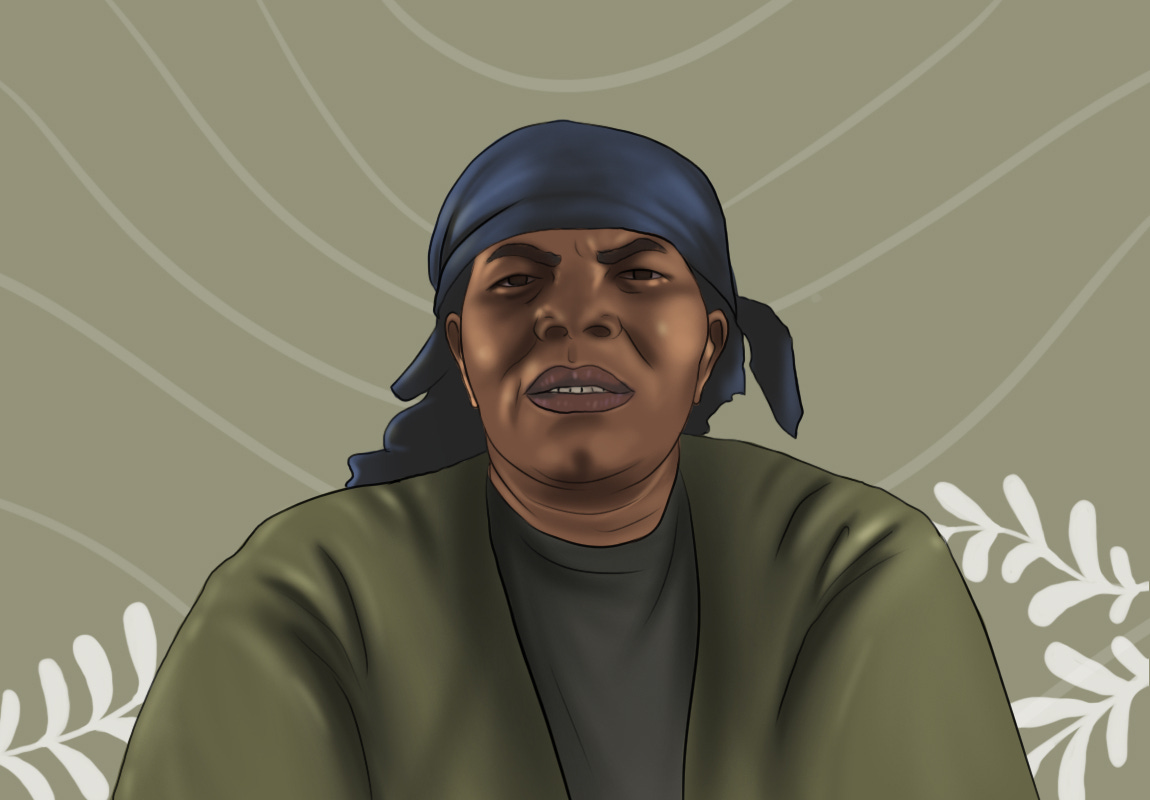Annie Silinga was a South African anti-pass laws and anti-apartheid political activist known for her role as the president of the Cape Town African National Congress Women’s League and as the leader of the anti-pass women’s march to the Union Buildings in Pretoria.
Annie Silinga was born in 1910 in Nqamakwe in the Butterworth district of Transkei. She only completed a few years of primary schooling in Transkei. She grew up there and had a happy childhood. According to encyclopedia.com, at that time, Transkei was a place of plenty, but overpopulation led to soil erosion and overgrazing.
By 1937, according to South African History Online, conditions became worse to a point where Annie was desperate to move. In her own words, “her babies were dying in Transkei.” Annie moved to Cape Town in 1937 where her husband Matthew was employed. It was the first time they could live together as a family. Matthew was earlier working in the mines of Johannesburg. Accommodation was not provided for the families of mine workers. In Cape Town, Annie and Matthew had five children and they lived a traditional life.
According to encyclopedia.com, after World War II, Annie and her family moved to the new African Township of Langa. In 1948, Annie joined the Langa Vigilance Association, an organisation that fought for the improvement of living conditions in Langa. The organisation also sought to protect people from apartheid laws.
In December 1956, Annie was arrested for treason and was taken to Johannesburg. She was the only African woman from the Western Cape to be among the accused.
In 1952, according to South African History Online, Annie joined the African National Congress during the Defiance Campaign. She participated in protests with her six-month-old baby. She served a brief jail term for civil disobedience. She was also a part of the group in the African National Congress Women’s League that organised the first meeting of the Federation of South African Women (FSAW). The group was led by Ray Alexander, communist and trade unionist, and included Gladys Smith of the Cape Housewives League, Katie White of the Women’s Food Committee, and Dora Tamanda of the African National Congress Women’s League and the Communist Party of South Africa. At the first conference, held in Johannesburg in 1954, Annie was elected to the Executive Committee. Even though she was illiterate, she came to the forefront as one of the main leaders of the anti-pass campaign. Pass laws were formulated by the apartheid government to tighten the state control over the movement of black South Africans.
In 1955, according to encyclopedia.com, Annie was arrested for not complying with pass laws. She unsuccessfully raised several appeals against the arrest. She was banished and sent to Transkei under police custody. About this incident, Annie said that her three children in Langa were orphans whose mother lived, and Matthew was a widower though his wife was still alive. Even after the banishment, Annie refused to comply with the regulations. She returned to Langa illegally to live with her family. In 1957, she finally appealed her case successfully by arguing that over 15 years of residence in Cape Town entitled her to remain there.
According to South African History Online, in December 1956, Annie was arrested for treason and was taken to Johannesburg. She was the only African woman from the Western Cape to be among the accused. The initial phase of the treason trial lasted till December 1957, after which the state dropped the charges against 61 of the defendants. Annie was one of those released. After the treason trial, Annie was elected as the President of the Cape Town ANC Women’s League and was jailed in 1960, during the state of emergency.
Annie was also involved in the formation of the Women’s Front. In 1983, she was made a patron of the United Democratic Front.
During her final years, Annie was looked after by her children. Without a pass, she was unable to receive a pension, but she was proud to have rejected the humiliation of the pass.
Annie passed away in 1984. She was buried in an unmarked pauper’s grave. However, at the request of Annie’s family, artist Sue Williamson created a piece to place at her grave in Langa cemetery. It bears Silinga’s battle cry: “I will never ever carry a pass.”
Now put on your thinking hats and think about the following questions for a couple of minutes.
Can you think of how the apartheid government tried to tighten the control over black South Africans by pass laws?
How would you describe the contributions of Annie Silinga in the Anti-pass movements?
Write down your thoughts and discuss them with your students, children, and your colleagues. Listen to their views and compare them with your own. As you listen to others, note how similar or different your views are to others’.
Thank you for listening. Subscribe to The Scando Review on thescandoreview.com.
Happy Teaching!














Annie Silinga: Anti-pass and anti-apartheid warrior